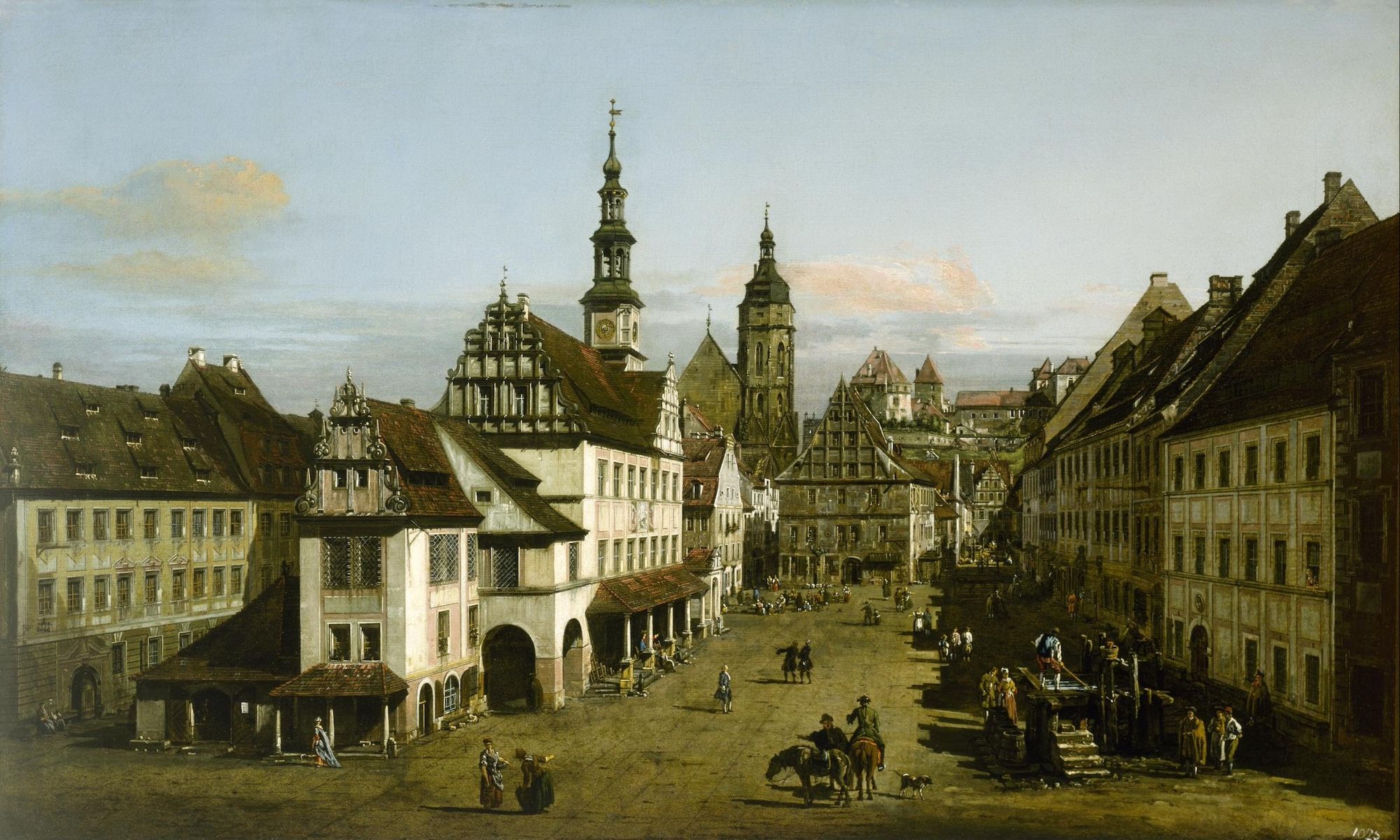Bernardo Bellotto, The Marketplace at Pirna, around 1764. Museum of Fine Arts, Houston, the Samuel H. Kress Collection Museum of Fine Arts, Houston
A panel of three judges for the US Fifth Circuit court of appeals affirmed a lower court’s dismissal of a claim brought by heirs of the Jewish department-store magnate Max J. Emden seeking the return of Bernardo Bellotto’s The Marketplace at Pirna (around 1764), which has been in the permanent collection of the Museum of Fine Arts (MFA) Houston since 1961.
The lawsuit was brought by three of Emden’s heirs in 2021 and revolves around a misidentification that led a foundation created by the Dutch government to send the wrong painting to a Nazi loot claimant in the immediate aftermath of the Second World War. The Fifth Circuit decision on 29 May affirmed the 2022 ruling by a judge in US District Court for the Southern District of Texas in Houston, which held that the restitution mistake in the late 1940s could not be prosecuted due to the “act of state doctrine”, which holds that US courts cannot make “judgement on the acts of the government of another [state], done within its own territory”. If that sounds like a convoluted reason not to restitute a painting once owned by the Nazis, a brief recap of the case’s details may provide some clarity.
Following the Nazis’ rise to power, Emden sold three Bellotto paintings from his collection to Karl Haberstock, a dealer acting on behalf of the German government, including The Marketplace at Pirna. The MFA Houston's provenance research suggests Emden sold the paintings for a fair price and not under duress; Emden's heirs have argued otherwise in this case an in a successful restitution claim to the German government for the two other Bellotto paintings sold to Haberstock.
Meanwhile, the German art dealer Hugo Moser owned a copy of The Marketplace at Pirna that was painted by another, anonymous artist after Bellotto’s version. When Moser fled to the Netherlands, he brought his “after Bellotto” Marketplace at Pirna with him, but when he later fled the Netherlands ahead of the Nazi invasion, he left the painting with an art restorer in Amsterdam. Both Moser and Emden’s versions of Marketplace at Pirna were ultimately seized by the Nazis and earmarked for inclusion in Adolf Hitler’s planned Führermuseum.
After the end of the war, the Monuments Men and Women recovered Emden’s three Bellotto paintings from a salt mine in Austria and Moser’s copy of Marketplace at Pirna from another storage facility. Both versions of Marketplace at Pirna were sent to the Munich Central Collecting Point (MCCP). The Dutch Art Property Foundation, which the Dutch government had created to handle restitution claims, received a claim for the “after Bellotto” copy of Marketplace at Pirna from Amsterdam’s Goudstikker Gallery. But in relaying that claim to the MCCP, it requested the return of the painting Marketplace at Pirna “by” Bellotto. The painting by Bellotto, which had belonged to Emden, was shipped to the Netherlands. Before Goudstikker Gallery could take possession, a competing claim was filed by Moser. Dutch authorities ultimately sent the painting—Emden’s original Bellotto—to Moser.
The Monuments Men and Women realised their error in 1949, but by then it was no longer in the Dutch Art Property Foundation’s possession. Three years later, Moser sold it to the American businessman and collector Samuel Kress, who loaned it to the MFA Houston in 1953; in 1961, the Kress Foundation gifted it to the museum.
The rulings in the MFA’s favour in 2022 and last week on appeal hold that because the Dutch Art Property Foundation was created by the Dutch government, its actions—even mistakenly restituting the wrong painting to a Nazi-loot claimant—were effectively acts of the Dutch government and therefore beyond the purview of US courts. In their opinion, the Fifth Circuit judges wrote that “adjudicating the Emdens’ claim could create a negative impact on foreign relations, even if a limited one. And that is exactly what the act of state doctrine prohibits.” In a statement, a spokesperson for the MFA Houston said the dispute over Marketplace at Pirna “has been definitively resolved in the museum’s favour”.
In their opinion, the Fifth Circuit judges did acknowledge that some—including the claimants, Juan Carlos, Michel and Nicolas Emden—may find this outcome unfair. “The Emdens may be right: The Monuments Men [and Women] may have improperly sent the By Bellotto Pirna to the [Dutch Art Property Foundation]; the [Dutch Art Property Foundation] may have unjustifiably sent Moser the By Bellotto Pirna even though he had a claim to only the After Bellotto Pirna; and the [MFA] may be violating the Washington Principles by refusing to return the painting to the Emdens.” But, they concluded, “it is not our job to call into question the decisions of foreign nations”.

